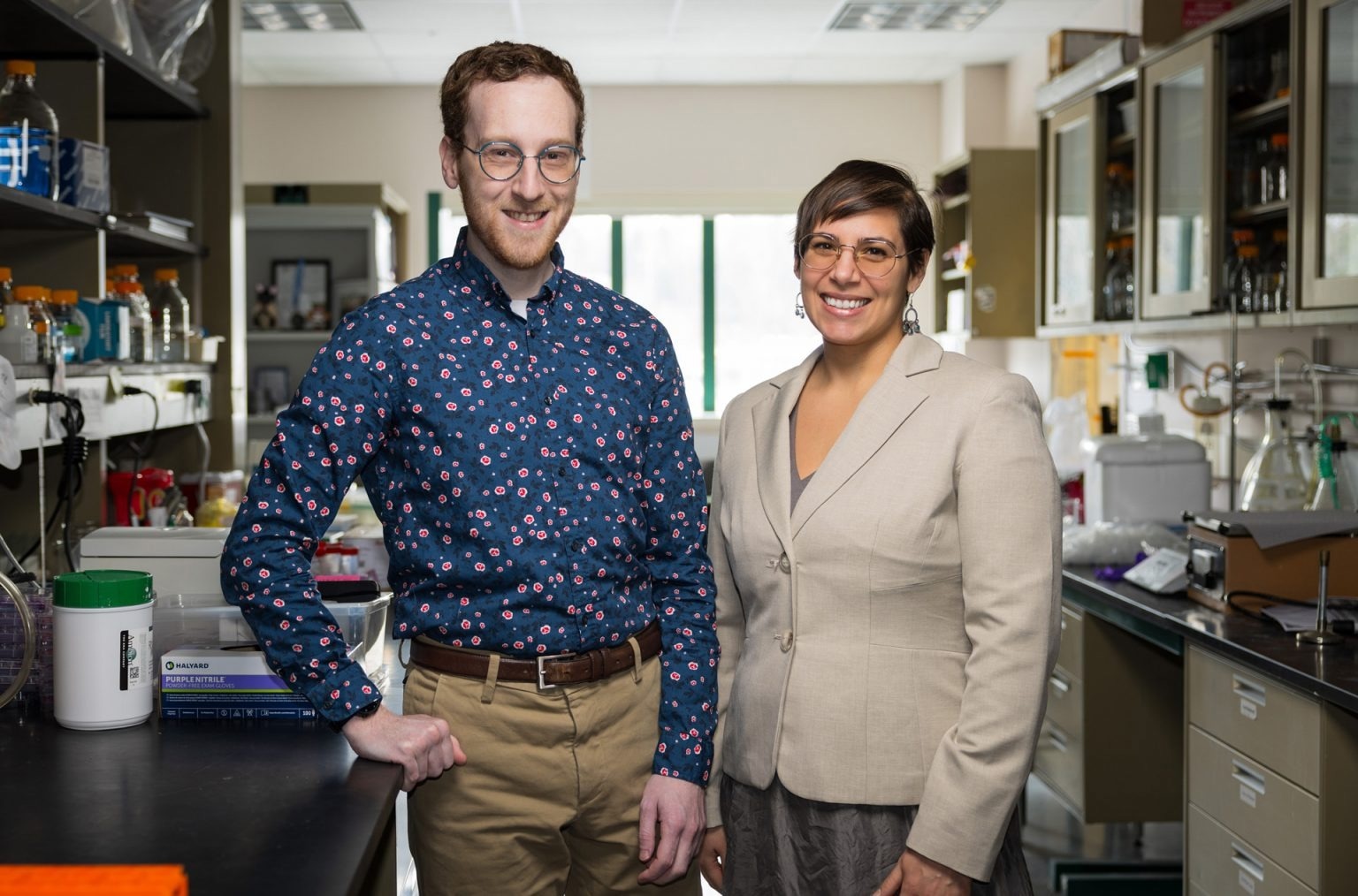The results of a recent study led by the Geisel School of Medicine and Thayer School of Engineering at Dartmouth provide new information about the role that antibodies play in preventing herpes simplex virus (HSV) infections. Their study could result in novel therapies for newborn herpes.
 Matthew Slein, a PhD Candidate in the Leib and Ackerman labs, and Iara Backes, an MD-PhD student at Geisel, served as co-first authors on the study. Image Credit: Rob Strong
Matthew Slein, a PhD Candidate in the Leib and Ackerman labs, and Iara Backes, an MD-PhD student at Geisel, served as co-first authors on the study. Image Credit: Rob Strong
Infections with the Herpes simplex virus are frequent and usually affect the skin and nervous system. These are brought on by two closely related but different viruses: type 1 (HSV-1), which affects up to 80–90% of older individuals and is more typically associated with oral infections, and type 2 (HSV-2), which affects 20–30% of adults and is more frequently associated with genital infections.
Although HSV can be more harmful to those with weakened immune systems, these viruses often do not pose a major risk to health because they often remain latent in the body. HSV may occasionally result in brain infections and corneal blindness.
It may also be linked to neurodegeneration and Alzheimer's disease. One of the deadliest infections in babies is the herpes simplex virus, which can spread to the brain and other organs. Severe infections can be extremely damaging.
Despite three decades of trying, the scientific community has been unable to develop an effective vaccine against herpes, and I think the main issue has been that we have not fully understood what we need, in terms of antibodies and their specific functions, to protect against this disease."
David Leib, Study Corresponding Author and Professor, Department of Microbiology and Immunology, Dartmouth Geisel School of Medicine
Leib and Ackerman collaborated on the project, as they frequently have, pooling their labs' resources and experience to co-supervise the work of Matthew Slein, a PhD Candidate in their labs, and Iara Backes, an MD-PhD Candidate at Geisel, who were co-first authors on the study.
The research team engineered antibodies with diverse properties to investigate how they mediate protection, and they utilized a newborn mouse model to imitate human neonatal illnesses.
What Matt and Iara have discovered is something unexpected, it is not just the neutralizing capability of antibodies, that is, their ability to bind directly to the virus and prevent it from entering the cell, that is important. Effector functions, which allow the antibodies to interface with other parts of the immune system, also play a critical role—one that has been largely overlooked in the past.”
David Leib, Study Corresponding Author and Professor, Department of Microbiology and Immunology, Dartmouth Geisel School of Medicine
Additionally, Slein and Backes discovered that HSV-1 and HSV-2 infections differ significantly from one another and that distinct antibody characteristics are needed for the best defense.
Notably, their findings suggest a more effective approach to vaccine development and could assist in clarifying the reasons behind the numerous vaccine candidates that have not proven to be protective in previous clinical trials.
Another important aspect of the work that Matt and Iara have done is that we now have some really good monoclonal antibodies that we have made in the lab that could potentially be used directly as a medication to treat acute neonatal herpes infections, which are life-threatening to newborns.”
David Leib, Study Corresponding Author and Professor, Department of Microbiology and Immunology, Dartmouth Geisel School of Medicine
Leib said, “Monoclonal antibodies have been used to treat cancer and other diseases and show promise as a therapy for infectious disease, and this would be a wonderful development, as antiviral drugs like acyclovir have only proven to be partially effective in treating these very sick kids.”
Source:
Journal reference:
Matthew D. Slein., et.al., (2024). Effector functions are required for broad and potent protection of neonatal mice with antibodies targeting HSV glycoprotein D. Cell Reports Medicine. doi.org/10.1016/j.xcrm.2024.101417